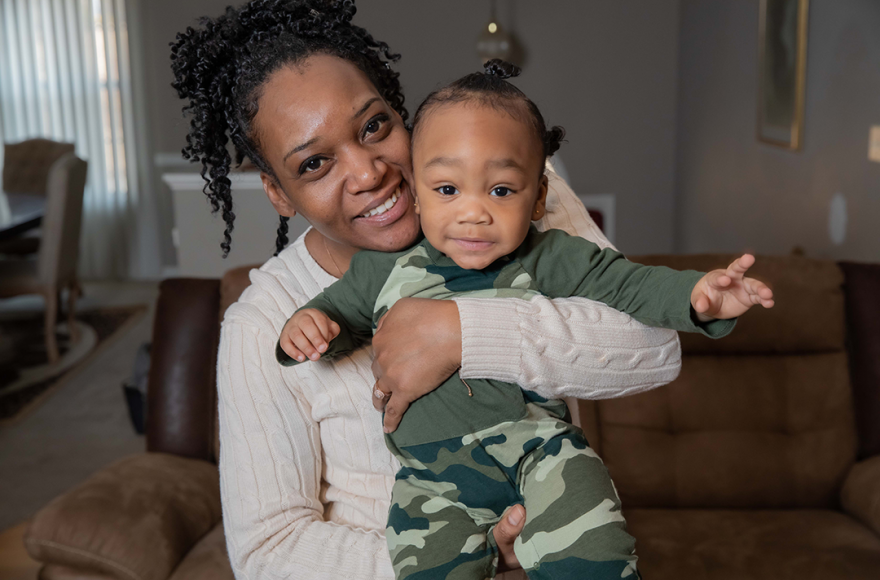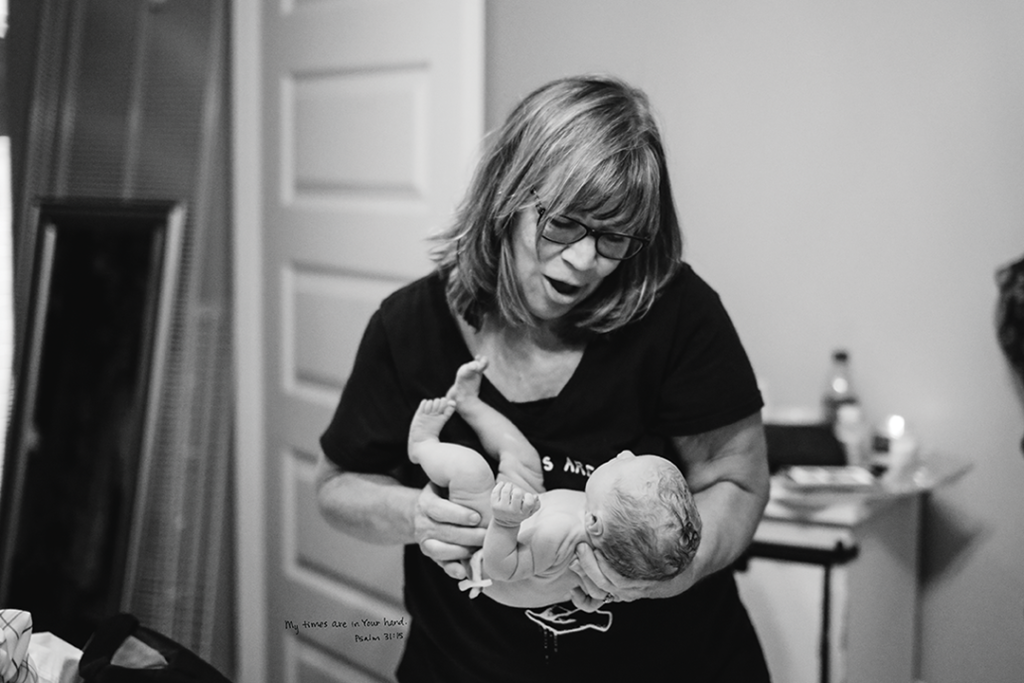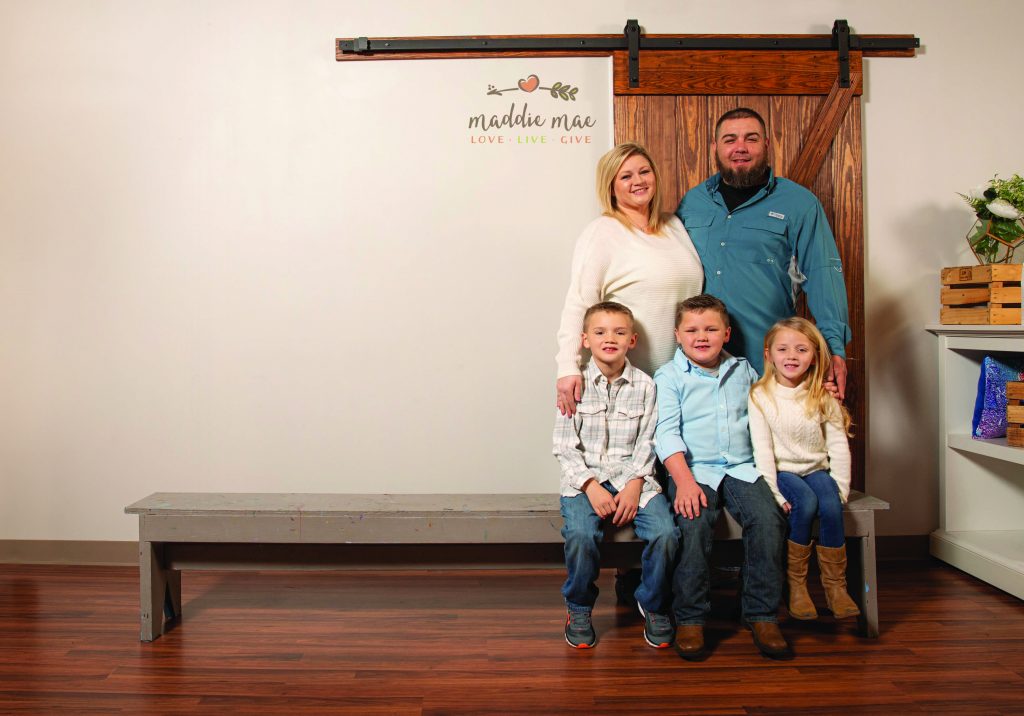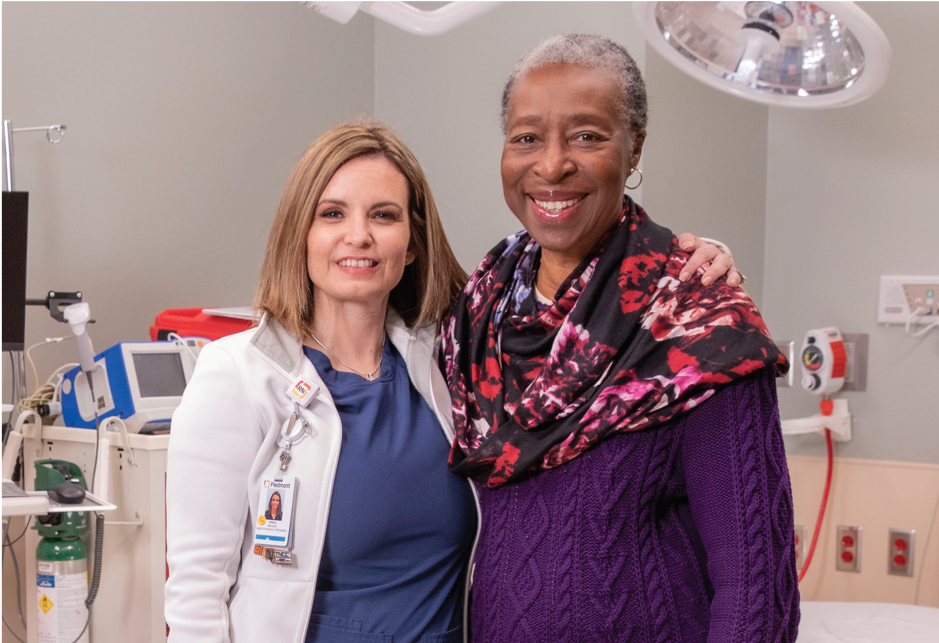Kamilah Smith was alarmed when she became violently ill at the onset of the COVID-19 crisis. Pregnant with her third child at the time, she would soon discover that she had hyperemesis gravidarum—a serious disorder responsible for almost 300,000 emergency room visits annually.
Kamilah Smith became terribly sick at the beginning of the coronavirus pandemic. Unable to keep anything down, she ended up in the Newton Piedmont emergency room, where a nurse administered intravenous fluids and collected samples to find out what was making Smith so miserable.
“The nurse came back in the room and said, ‘It’s positive!’” Smith said. “I immediately assumed I had corona, but she said, ‘No, you’re pregnant!’ We laughed because I didn’t know what she was testing me for.”
Grateful to be expecting again, Smith went home with a prescription to help the vomiting subside. Unfortunately, the medicine did not work. She ended up enduring a full eight months of relentless nausea that impacted every facet of her daily life. Hyperemesis gravidarum is a blessedly rare condition limited to pregnancy. In fact, it is included on the National Organization for Rare Disorders’ website. However, for the women it affects, the condition can be quite serious. Characterized by severe nausea and persistent vomiting, it can result in vitamin and mineral deficiency, dehydration and weight loss. It can also affect the baby’s growth and result in premature delivery.
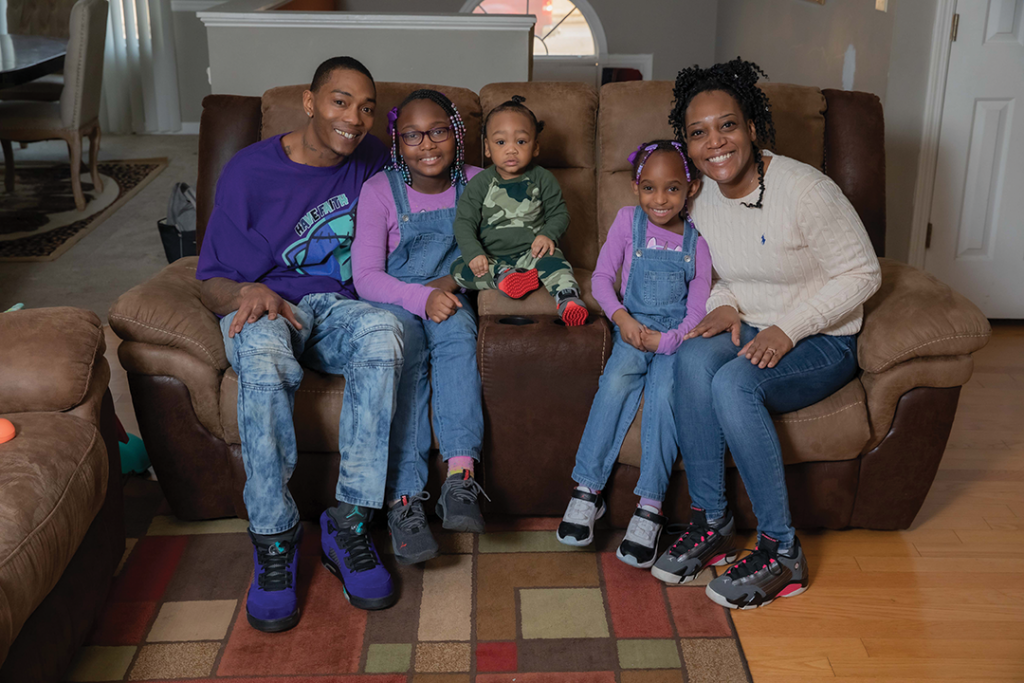
“I was an OB/GYN nurse for 15 years,” Smith said. “I knew that ‘normal’ morning sickness could include nausea at any time of day, but after about 12 weeks, you get better. I knew about HG from my work, and I also had a friend who had it.”
The mother of two daughters was surprised when she was diagnosed with HG, because she had only endured the usual morning sickness experience with her previous pregnancies. With her first daughter, Khalilah, she vomited just once while brushing her teeth. With her second daughter, Kalani, her queasiness was limited to the first trimester. With Jayse, the sickness was so profound that all the Piedmont labor and delivery nurses grew to know Smith and her son by name. She cannot recall how many times she landed in the ER, but she was admitted to labor and delivery twice because her dehydration could not be adequately managed at home.
“It was a day-by-day struggle. I look back, and I don’t know how I made it through.”
Kamilah Smith
“It was a day-by-day struggle,” she said. “I look back, and I don’t know how I made it through.”
Because of the pandemic, her kids were doing virtual school. Smith had to balance teaching them with her sickness, all while working from home as a corporate recruiter.
“When your stomach hurts all the time, all you want to do is lie around. I had an old orange Halloween bucket that I had to carry around with me,” she said. “I had all these little rituals. I’d go lay in the shower and have the water run over me in the tub, because I’d rather just throw up in the tub than have to run to the toilet every five minutes. Every day, I would just remind myself that the end date was my due date.”

Smith’s healthcare team put her on a pump that distributed a continual dose of the anti-nausea medication Zofran. She had a home health nurse that helped her manage the pump and her diet.
“The nurse educated me on how to eat when I did feel well enough to,” she said. “It was basically a bland diet—stay away from spicy stuff and things you crave but trigger you. For me, dairy was a big trigger. I always craved ice cream, but I learned that if I gave in, I regretted it later.”
Despite the limitations from HG, Smith was amused to find that she still gained a normal amount of weight throughout her pregnancy.
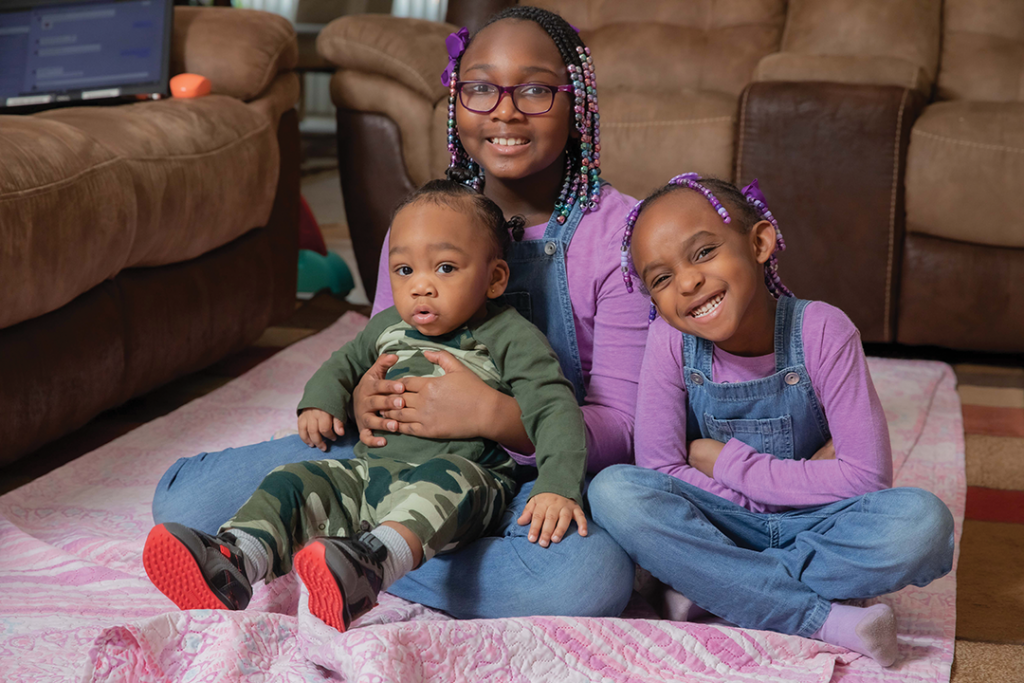
“I’m that lady that always gains 40 pounds when I’m pregnant,” she said with a laugh. Smith credits her healthcare team, Dr. Cathy Larrimore in particular, with helping her have a positive outcome. “One time I was hospitalized, [and] my potassium was really low. They brought this big fruit bowl up to my room. Later, I found out that Dr. Larrimore had sent it to me herself because she wanted to get my potassium up. We have a special relationship.”
Smith was naturally concerned about how HG would affect her son. Jayse was delivered three weeks early but at an impressive seven pounds.
“He clearly wasn’t missing anything,” Smith said. “I had a healthy baby. In the end, that’s all that mattered.”
Smith encourages other women experiencing HG to trust that their baby will be fine and to surround themselves with a supportive village of nurses, friends and family.
“Stay in tune with your doctor, build a relationship with your nurse [and] find a safe person who will let others know what you need,” she said. “Like my mom, I could text her the word ‘sick’ and she would let everyone know I needed help that day. My neighbor across the street was wonderful, too.”
Despite all she endured, Smith remains willing to go through it again to have another child.
“It’s crazy because my mom’s like, ‘You want to have another baby after all this?’ It didn’t scare me away from it,” she said. “My daughters are only two years apart. I think Jayse needs a partner.”
Click here to read more stories by Kari Apted.

